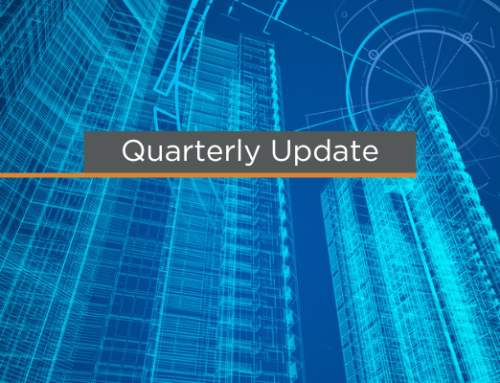By Jennifer French, CPA
This summer, thousands of Virginia employers received a notice about RetirePath, a new, state-sponsored retirement program. After February 15, 2024, employers that do not register with RetirePath (or offer another qualified retirement plan) will be subject to steep fines. Offering an employer-sponsored retirement plan is a key tool to attract and retain skilled workers, of which construction contractors are in short supply.
Whether through RetirePath or another qualified retirement plan, there are options to give workers more access to retirement savings. The question now for Virginia contractors isn’t whether to offer a retirement plan, but which one.
What is Virginia’s RetirePath?
Virginia follows the lead of at least nine other states to mandate that certain employers offer a qualified retirement plan.
RetirePath is an automatic state-administered individual retirement account (IRA). The road to RetirePath started in 2021. After July 1, 2023, eligible employers began to receive notices informing them of either the need to register with RetirePath or opt out with an approved exemption.
Contributions are designated as a Roth IRA – tax-free upon qualified withdrawal, but with after-tax contributions – but participants have the option to re-characterize to a traditional IRA. Employees are automatically enrolled with a standard five percent contribution rate after 30 days of employment, but may change their contribution level or opt out and re-enroll at any point.
Absent employee action, RetirePath will automatically increase contribution rates by one percent each year until the maximum rate of ten percent has been reached. Employees can adjust this on their own and may contribute as little as one percent or up to 100 percent, up to annual contribution limits.
Employers are not charged administrative or fiduciary fees; instead, a small percentage is deducted from employee accounts.
Employers that fall under the RetirePath requirements are:
- Private sector business
- had 25 or more eligible* employees in 2023,
- have been operating for more than two years, and
- do not already offer a qualified retirement plan, such as a 401(k), 403(b), or Simple IRA.
Eligible employees:
- are at least 18,
- work an average of at least 30 hours per week, and
- receive wages in Virginia.
- Self-employed Virginians are also eligible.
To opt out, an employer must provide proof of an alternative qualified retirement plan, like a 401(k), 403(b), SIMPLE IRA, SEP, or other approved retirement plan.
For Virginia RetirePath, registration is now open for other employers that do not meet the exemption criteria.
Retirement Plan Considerations for Construction Contractors
RetirePath was created to help fill a gap in Virginia employees’ retirement needs. Almost half of Virginia’s workforce does not have access to a workplace retirement plan. When given access to a plan through payroll deductions, employees are 20 times more likely to save for retirement.
Offering a competitive retirement plan has proven to be a way to attract and retain top talent across all industries. Especially for construction, an industry with a dire need for skilled workers, recruiting and keeping employees is one of the biggest challenges. There is room for improvement.
Among companies that currently offer a retirement plan, the construction industry is among the lowest in offering immediate enrollment eligibility and immediate vesting. Construction also falls behind in the average participation rate, account balance, and deferral rate. Still, there are a couple areas where construction outperforms other industries.
According to ADP, 17.7 percent of construction firms offer a profit-sharing retirement plan, and 83.4 percent of plans offer matching employer contributions.
A 2021 defined contribution plan survey revealed these averages for construction, contracting, and building trades retirement plans. How does your plan compare?
- 3% average participation rate
- $104,979 account balance
- 9% average deferral rate
- 8% immediate eligibility
- 2% immediate vesting
Virginia’s RetirePath directly addresses many of these challenges by mandating automatic enrollment and a standard contribution rate, and enrollment after just 30 days of eligible employment. Still, the IRA-based plan may not be right for every business – especially construction companies.
Prevailing Wage 401(k) Plans
Contractors that primarily engage in public works projects have the opportunity to leverage their 401(k) plans to maximize fringe benefits. Because fringe benefits can be paid using qualified benefits, contractors can treat these funds as employer contributions. Fringe payments would not be included in payroll, so payroll taxes would be less. However, prevailing wage 401(k)s are structured differently than traditional 401(k) plans.
Contractors can have one prevailing wage 401(k) plan that covers all employees, too – not just those who are prevailing wage employees. The plan must be designed properly so that it meets matching contribution and other compliance requirements. Plan administrators, like PBMares, can ensure the retirement plan is set up and monitored properly.
Prevailing wage 401(k)s and other types of qualified retirement plans can be structured with the same benefits as RetirePath but in a way that may work better for individual tax and financial needs.
Deadlines for New Retirement Plans
There is still time to establish a new 2022 calendar-based retirement plan for certain businesses that have yet to file their extended tax returns. S-Corps and Partnerships have until September 15, 2023, and C-Corps and Sole Proprietors (or LLCs taxed as either one) have until October 15, 2023. Then, employers can make contributions for the current year before year-end.
Additionally, October 1, 2023 is the last date to adopt a safe harbor 401(k) plan for 2023.
For new 2023 retirement plans, S-Corps and Partnerships must adopt a 401(k) plan by March 15, 2024; C-Corps and Sole Proprietors have until April 15, 2024. In other words, the tax return due date.
Because there are so many options to choose from with varying levels of complexity and compliance requirements, businesses should work with their tax advisor on the best solution.
For more information on RetirePath or other retirement plan solutions for your construction contracting business, contact PBMares’ Construction & Real Estate Team Leader Jennifer French, CPA.





